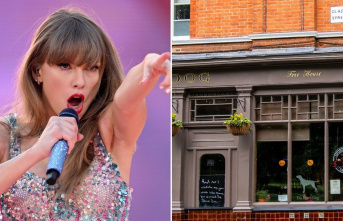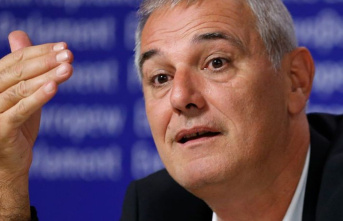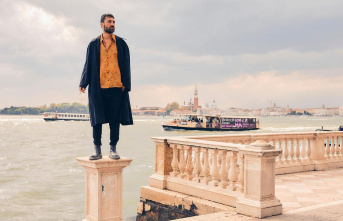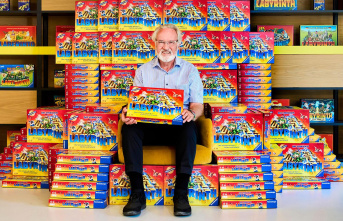In the early days of 1917, when the soldier Viktor Shklovski worked as an instructor in the Armoured Division of the Reserve of russia, the revolution was a fact of life. There was a sense. Even in the stories of the trams Píter (popular name of St. Petersburg) or in the profusion of booklets on Grigori Rasputin. And above all, the shortages of food and the breakdown of the morale of the troop by the military setbacks they suffered in the First World War. “You knew it would explode. It was believed that would be fired in the war to end,” wrote Shklovski as a starting point of sentimental Journey, the book in which grouped their memories between 1917 and 1922, now published again in English by the publishing house Captain Swing after years out of print.
MORE INFORMATION
The artifice literary MoveAt that moment the soldier Shklovski, it was already the main theoretical formalism Russian, the intellectual movement emerged in the Russian pre-revolutionary reaction to the symbolism prevailing and that caused a suggestive explosion of creative between 1910 and 1930. And Píter, then already called Petrograd, would end up being the main focus of the February Revolution, which would force the abdication of tsar Nicholas II and the fall of the monarchy. At the end of February, the images will speed up before the eyes of the soldier: shootings with victims in the avenida Nevski, a dead horse that stays several days in the corner of the avenue Litéini, pickets with machine guns at the crossing of Besséinaia with Baskóvskaia, patrols cainitas on the bridge Vladírmiski...
“Still, I'm surprised that so many events would fit in a single day”, are amazed at the moment to put it in the paper. The hulk repressive Government faltered, the State entered in diarrhea. The regiment Volinski forced the store of ammunition, and took to the streets. The soldiers of the garrison of Shklovski were waiting for the order to leave, the officers said, “Do what you please.” Outside thronged the people: “it Seemed to expect a show.” The rebellion spread to the State Duma: “The stream we dragged you all and the wisdom consisted in letting yourself go”. Shklovski came to the Duma in a Lanchester equipped with cannon. There, under their noses, it would trigger the race for the charges with the first jockey. After the would be “a lot”.
The fallout had taken command in Píter, with machine guns across the rooftops, troops that they did not know what side they fought and arsenals gutted by the crowd: “little by Little it had become clear that, once sublevada, the city didn't have with who to deal with.” Shkolovski ate in canteens with supplies of plunder, and felt happy: “That was an Easter, a joyful, desmadrado, innocent paradise carnival”. The Soviets had lodged in the palace Táuride. Armed, “tumultuous and vocinglero”, incandescent. To point of light the Order Number 1 (legitimacy of the soviets and military subordination to the Soviet and its committees): “the Dominant mood is light, were we happy to believe without question that that was only the beginning of everything good.”
In the midst of this atmosphere bubbling with the soldier became a red commissar, and saw for the first time Aleksandr Kérenski: “I Vomited replicas well-known and really seemed to crackle and sizzle as a bundle of kindling”. It seemed to him “a man who had already been emptied completely, already known to be doomed.” And appeared Vladimir Lenin. “Arrived when the revolution was already a fact and is levered. What current in Píter attracted much more than a modest office in the front”. Often, “with certain air gatunos”, shaven head, “the typical first-class who dreamed to be a genius.” Ripped “as a guest”, but “persuasive, accurate, and persistent” as it was, was called upon to play “a significant role”. Lenin proposed to send commissioners to the Army. Consulted Shklovski. Departed as head of propaganda towards the front of the austrian: “I ended up in a very different world”.
The bolshevism had not arisen and regiments, still clung to The Marseillaise and the slowness residual in the military. The Army was politically torn to shreds and trust the moral authority of the Soviet of Petersburg: “of Course, that the Soviet was so still that to follow him was like going to nowhere”. The regiments suffered total abandonment. In the inexorable “process of degradation” some battalions were sewn skulls and tibias cross in the coat. The regiments refused to dig trenches, “other divisions refused to do this or that because I wanted to do it from beyond, or vice versa.” In some places in the front of the soldiers of the one and the other sides are together and confraternizaban: “Even organise a brothel-free and neutral in no-man's land”.
The fiery Shklovski invoked the right of revolution on the lives of the soldiers in order to inspire moral (“at that time, not yet dismissed the words as the disdain now”). Other commissioners, as the comrade Anardóvich, regurgitaban the topics of the speeches of the Soviets: “The rhetoric of the revolution had permeated his soul as a liturgy. Seemed to be an orthodox christian”. But in front there was only desolation, men knocked down. Defections, leaks of entire companies, desbandadas of officers, soldiers with the feet rotted by the dampness of the trenches, discouragement, and fire, austrian and German.
One of those bullets penetrated the abdomen of Shklovski. In the nurse's office will not guaranteed to survive. The nurse who removed the boots and the jacket he asked that they gave me. Dead is not going to need. But it is not his hour had come. A telegram notified him that his mission had finished. Received the Cross of St. George, but the German advance was pushing, while “the men underpinned with their arms to the Army in collapse, supported him with their lives.” The injured, after a history of stretchers, military convoys and trains, he returned to Píter, “to the dear, dreadful city of the Russian Revolution”. Then the troops “stuck to bolshevism as a desperate man escapes from the life to the psychosis.”
With the same attitude descreída, Shklovski, the young man who before the war glared at the cabaret The Stray Dog in St. Petersburg with his vision of futurism in the Russian poetry, continues his account in Persia, whither he was sent as commissioner to the Russian Army of occupation. Again the chaos, “tribes that hated each other to death”, pogroms, and an army that “could be without a remedy”. Shklovski returned to Petersburg in January 1918. Píter was “as deafened”: “just Like after an explosion, when all is nothing.” It was “a time when they were all chocolate.” As he didn't know how to do it, he was involved in a conspiracy to restore the Constituent Assembly dissolved by the bolsheviks.
But it was “the era of local power, and the terror local”. He started the pack. Wanted: Stay-in-Píter meant certain death”. His brother Nikolai was shot. Went to Moscow with false documents. To The Saratov Region. To Atkarsk. Lenin suffered a terrorist attack. It strengthened the fence. He returned to Moscow, he stole money and documents while buying hair dye. Had to raparse after dying because of him was the hair of a lavender color. He could laugh before he fled to Ukraine, where they passed through a score of governments. Crossed as many cities as trades served. At that time the curtains are made in suits, rugs, coats, sofas, suede pants and the furniture and books fed the stoves. Rampant hunger and the cold. Bed bugs and lice, marking the rhythm.
Shkvloski was able to return to Russia, aided by the influential Maksim Gorky, the founder of the literary movement socialist realism. In 1921 he left the Soviet Union and fled to Finland, where he finished writing sentimental Journey, the chronicle of the journey from revolutionary, an intellectual, and confused. The book, with a narrative fabric scalloped with irony and formalism, with steep and succulent digressions, was published in Berlin in 1923. The mood light now was burning hot. But again Píter, now called Leningrad, and tightened the belt for the duration of the Stalin era. He lived in Moscow, where he died in 1984, but is not buried in the Necropolis of the Kremlin Wall, as John Reed, author of Ten days that shook the world.
Date Of Update: 30 December 2019, 14:00










